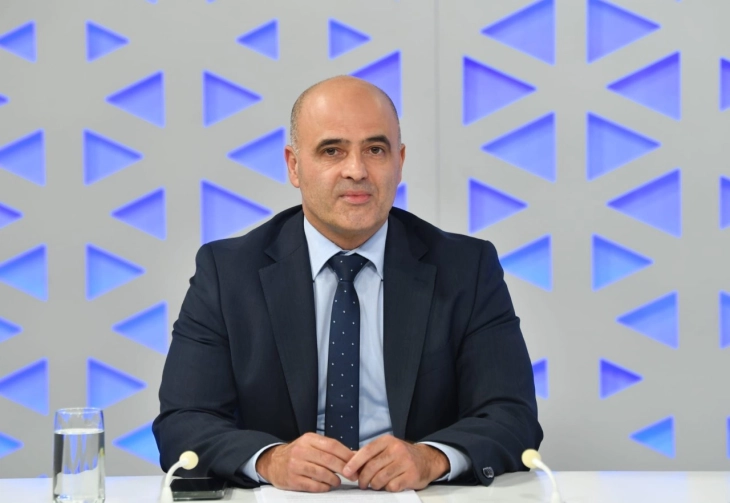Kovachevski: Payment of financial support for vulnerable categories of citizens, pensioners should start as of November

Skopje, 10 October 2022 (MIA) – The plan is that the payment of financial support for vulnerable categories of citizens and pensioners starts as of November, Prime Minister Dimitar Kovachevski said Monday, commenting on the support set by the Government to deal with the energy crisis in the country.
“The Government made a decision today to prepare a law on financial support for vulnerable categories of citizens in times of crisis. The intention is to start payment of funds for these categories of citizens as of November, 41,878 citizens from the vulnerable categories and 130,000 citizens from the category of pensioners. This includes a wider range of citizens. The plan is to start as of November. I hope that the political parties and all the MPs in the Parliament will rise to the task and as soon as the legal solution is submitted during this week, it will go in parliamentary procedure and be approved,” Kovachevski said in an interview with 24TV.
Kovachevski added that subsidizing electricity will continue for 610,000 households and 72,000 small consumers with funds from the budget.
“The total amount that will be paid from the budget exceeds EUR 220 million just for the electricity subsidy paid by the citizens. If it were not for that subsidy, which is given by the state through ESM, so that it can produce electricity that is cheaper and sell it at a lower price than the market price of EVN, the citizens' bills would be five times higher,” said Kovachevski.
The PM noted that this year there will be no budget revision, but reallocation of funds.
“Any change to the budget is either budget revision or reallocation, which is also prepared by the Government and submitted for approval in the Parliament. We will have one now of over EUR 100,000 million, where certain costs are cut as we consider them not necessary amid crisis, so they can be repurposed for dealing with the crisis, i.e. providing everything necessary for uninterrupted supply of electricity, food and payment of anti-crisis measures. This means that the revenues of the budget, the borrowing that we have done as well as the deficit that is projected, ensure the payment and financing of all these expenses that are foreseen,” said Kovachevski.
Commenting on the loan provided by the IMF, the PM said it will be withdrawn this year, next year and the year after that, adding that the interest is between one and two percent, and then the repayment will go on successively, as the state's budgetary functioning recovers.
“We were accused by the opposition and that proved to be groundless. The agreement reached shows that the IMF approved this instrument due to good economic policies, stable fiscal and monetary policy. It will be paid this year, next year and the year after that, and the interest is between one and two percent, and then the repayment goes successively, as the state's budgetary functioning recovers. This instrument is used to support the budget and the foreign exchange reserve,” Kovachevski pointed out.







